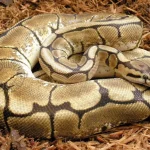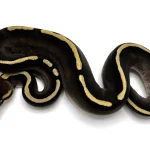Did you know that corn snakes are named not because they eat corn but because they are often found near cornfields where they hunt rodents? These beautiful, colourful snakes have some interesting habits when it comes to what they eat.
Understanding what corn snakes eat is important to keep them healthy and happy. Knowing their diet helps you take better care of your pet corn snake, ensuring it lives a long and healthy life.
Corn Snakes Diet in Wild
In the wild, corn snakes are skilled hunters. They mainly go after small animals like rodents, such as mice and rats, which make up most of their diet. They might also catch small birds and even amphibians like frogs if they come across them.
Hunting Behavior: Corn snakes are sneaky and patient hunters. They use their keen sense of smell to track down their prey, and once they find it, they strike quickly. After grabbing their meal, they wrap their bodies around it and squeeze until the prey stops moving, and then they swallow it whole.

Seasonal Variations: The diet of corn snakes can change with the seasons. In warmer months, when food is plentiful, they might eat more frequently. However, during colder months, when prey is harder to find, they might eat less or go longer without food. Corn snakes adapt to what’s available, which helps them survive in the wild.
Corn Snakes Diet in Captivity
In captivity, corn snake food consists of mice and sometimes small rats. These are the main sources of nutrition for a pet corn snake. It’s best to feed them pre-killed or frozen prey that has been properly thawed, as this is safer and more convenient.
The feeding behaviour of corn snakes depends on their size and age. Baby corn snakes should be fed every 5 to 7 days, while Adult corn snakes can be fed every 7 to 10 days. A consistent feeding schedule is important because it helps your snake stay healthy and grow properly. Overfeeding your corn snake can lead to obesity, while underfeeding can cause malnutrition.
Tips for feeding corn snakes: When feeding your corn snake, it’s important to thaw frozen prey completely before offering it. You can do this by placing the frozen mouse or rat in a plastic bag and soaking it in warm water until it’s fully thawed. Never use hot water, as it can kill prey and make your snake unsafe. Once thawed, use feeding tongs to offer the prey to your snake. This helps prevent accidental bites and keeps your hands safe. Let your snake take its time to grab the prey, and avoid disturbing it while it eats.
Foods to Avoid

Some foods, like insects and fish, are not good for corn snakes because they don’t provide the right nutrients that these snakes need. Also, very large prey, like a big rat that is too large for your snake to handle, can be dangerous. It can cause choking or injuries to your snake’s mouth and digestive system.
Health Risks: If you feed them the wrong types of food, this can lead to serious health problems. Insects and fish lack the necessary nutrients which can lead to malnutrition over time. If you feed your snake prey that’s too large, it can cause regurgitation, where the snake throws up its food because it can’t digest it properly. This can be very stressful and harmful to the snake. Additionally, large prey can damage the snake’s mouth or internal organs, leading to infections or other complications. To keep your corn snake healthy, always stick to the appropriate-sized mice or rats.
Corn Snakes Nutritional Needs & Supplements
Essential Nutrients: Corn snakes need a balanced diet to stay healthy. The key nutrients they require include protein from their prey, which helps with growth and energy, and calcium for strong bones. The regular diet of mice or rats usually provides these nutrients, but it’s good to be aware of their needs.
Supplements: Most of the time, you won’t need to give your corn snake supplements if you’re feeding it properly. However, if you notice any health issues or your snake’s diet isn’t varied enough, you might consider using a calcium supplement. This can help prevent bone problems. Always follow the instructions on the supplement and consult a vet if you’re unsure.

Hydration: Fresh water is essential for your snake’s health. Provide a clean water bowl in its enclosure at all times. Change the water regularly to keep it fresh and avoid any build-up of bacteria. Proper hydration is essential for digestion and overall health, so keep an eye on your snake’s water supply and refill it as needed.
Observing and Adjusting Diet
To keep your corn snake healthy, regularly check its overall condition. Look for signs like good energy levels, smooth skin, and normal shedding. If your snake seems lethargic or its skin looks dull, it might be a sign that its diet needs adjusting. Pay attention to how much your snake eats and how it behaves after eating.
Signs of Overfeeding or Underfeeding:
- Overfeeding: If your snake is overfed, you might notice it becoming overweight. This could show up as a noticeably plump body or difficulty moving. If this happens, cut back on the amount of food and stick to the recommended feeding schedule.
- Underfeeding: An underfed snake might be very thin or appear weak. It might also refuse food or seem very active and restless. If you see these signs, try increasing the amount of food and make sure you’re feeding it regularly.

If you notice persistent issues with your corn snake’s diet or health, it’s important to consult a veterinarian with experience in reptile care. You should consult with The Reptile Doctor (Dr. Jeremy H. McKinney), a veterinarian with expertise in reptiles. You can find useful information on their website or consult them for specific advice.
Also, See What Do Snakes Eat? Snake’s Diet and Their Feeding Behaviour
FAQ’s And Facts
Can I feed my corn snake insects or fish?
As we mentioned above, it’s not good to feed your corn snake insects or fish. Corn snakes mainly eat small rodents like mice and rats, which provide the nutrients they need. Insects and fish don’t have the right balance of nutrients for corn snakes and might not be good for their health. Stick to feeding them properly-sized mice or rats to keep them healthy.
What should I do if my corn snake refuses to eat?
If your corn snake refuses to eat, try these steps:
- Check the Temperature: Make sure the enclosure is at the right temperature. Corn snakes need a warm spot to help with digestion.
- Ensure Proper Size: Make sure the prey is the right size for your snake. If it’s too large or too small your snake might not eat it.
- Try Different Prey: Sometimes, offering a different type of prey, like a different size of mouse, can help.
- Adjust the Feeding Time: Try feeding at different times of the day, as your snake might prefer a different feeding schedule.
- Avoid Handling: Don’t handle your snake too much around feeding time. It can be stressful and they would not be able to eat.
How do I know if my corn snake is getting enough food?
To know if your corn snake is getting enough food, look for these signs:
- Regular Eating: Your snake should be eating regularly according to its age and size. If it’s eating the right amount for its size and age, it’s likely getting enough food.
- Active Behavior: A well-fed corn snake will be active and alert. If it’s moving around and exploring, it’s a good sign it’s getting enough to eat.
- Good Shedding: Proper feeding helps with healthy shedding. If your snake sheds its skin well and without problems, it’s likely getting the nutrients it needs.
Do corn snakes need variety in their diet?
Corn snakes don’t need a lot of variety in their diet. They mainly eat mice and occasionally small rats. These provide all the nutrients they need to stay healthy. You don’t have to give them different types of food; just make sure the prey is the right size and offered regularly. Keeping their diet simple helps them stay healthy and prevents any digestive issues.
Conclusion
Make sure to follow a regular feeding schedule and handle your snake gently. If your corn snake refuses to eat or shows any signs of health issues, consult a vet. By sticking to these guidelines and paying attention to your snake’s needs, you’ll help ensure they stay healthy and happy.






